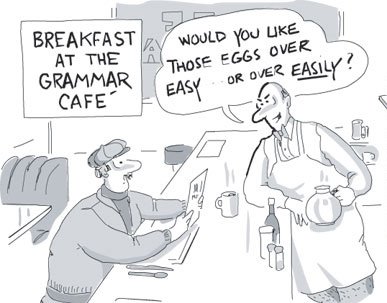Make Up Your Minds Already!

Going over copyedited manuscripts always puts me in a cranky mood. Going over two copyedited manuscripts, one right after the other, when I can hardly think straight thanks to the flu has put me in an ubercranky mood. (So you’ve been warned.)
Now, I’m not one of those writers who see copyeditors as the enemy. I know I do incredibly stupid stuff when I’m writing. When my brain is flying along in creative mode, I write ‘sat’ when I should use ‘set,’ and ‘discrete’ when I should use ‘discreet,’ and a dozen other strange permutations of the English language. A car that is black in one chapter suddenly becomes red. A character named Yates suddenly becomes Yardley. And no matter how many times I go over a manuscript, I still miss those pesky little mistakes. Lots of them. So thank god and publishers for copyeditors.
But there’s nothing like going over two copyedited manuscripts back to back to make you appreciate that this is not an exact science. I feel like screaming, Okay, guys! How about if y’all get together and make up your pedantic little comma-obsessed minds?
Do we say: Now, she knew she was wrong. Or do we say: Now she knew she was wrong.
Because you see, if it’s so important that you guys feel the need to take out a comma—or put it in—then shouldn’t you all agree, especially since you claim to be using the same style guides? Obviously not.
Or here’s another one/Or, here’s another one: What I want to know is, Do I capitalize the D? Or should I say, do I capitalize the d? One copywriter says, no. The other says, Yes. Ghrrr.
And don’t get me started on capitalization. Back in the dark ages when I went to school, if you wrote, “the Secretary of State [as in, Clinton] walked across the room,” the office-as-placeholder-for-the-name was capitalized. But it seems that in the decades since, newspapers discovered that such capitalizations slow down their readers, so they stopped using them. Now (,) everyone (including certain New York publishing houses) is following the newspapers’ lead. The problem with that approach is that if you have a character who is constantly referred to as “the Colonel” or “the General,” then I think it’s less confusing for readers if the old rule is followed. So I have stuck to my guns on this one. But believe me, it’s exhausting. As in parenting, one must pick their battles.
Now (,) you might think I could just jot down some notes about house rules and make the effort to have my next manuscript conform. But apart from the fact that I don’t need one more distraction, these aren’t house rules; these are individual copyeditors’ rules. I looked up previous manuscripts. And you know what? I started sticking those bloody commas in after the “now” and the “once” because a previous copyeditor with the same house insisted they were needed!
So, I give up. Or is that, so I give up? Or should I have said, Or is that, So I give up? Or…
Labels: copyediting, writing


